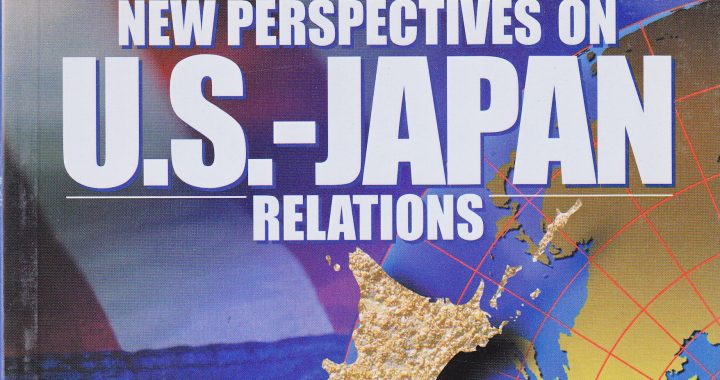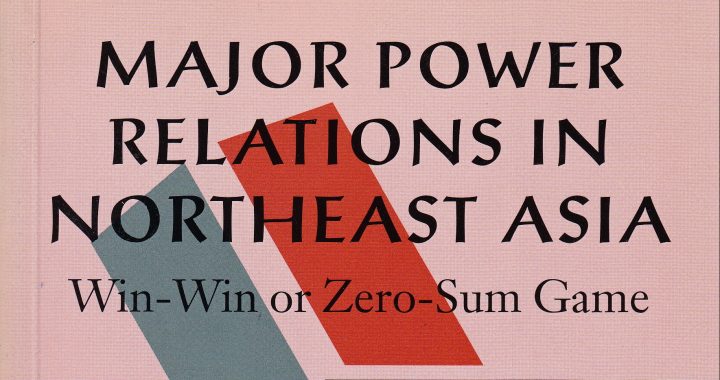JCIE Publications | New Perspectives on US-Japan Relations

This book contains insight from political scientists into one of the most important bilateral relationships in the world; discussions range from issues of trade and financial management, shifting perspectives on security in Asia, to the role of mass media in this relationship.
JCIE Publications | Major Power Relations in Northeast Asia

This publication, the result of a study on the “China-Japan-US Research and Dialogue Project,” contains essays by six American analysts in a multinational team identifying the challenges to productive and peaceful relations among China, Japan, and the United States.
JCIE Publications | Survey Report on Binational and Other Research on Economic Themes of Interest to Japan and the United States (JCIE Research Reports: No. 1)
This brief report, written for the 11th US-Japan Conference on Cultural and Education Interchange held in June 1982, surveys and summarizes joint US-Japan policy research carried out at research institutions and universities from 1979 to mid-1982.”
JCIE Publications | Korea-Japan Relations in Transition: Challenges and Opportunities
This book contains essay presented to the 4th Korea-Japan Intellectual Exchange Conference, which coincided with a period of change in both Korea and Japan–in Korea, the inauguration of a new government was seen as a possible harbinger of rapprochement following tense bilateral strains.
JCIE Publications | Handbook on Japanese Industrial Structure
This handbook provides a general picture of changes during the century to the 1970s in Japanese industrial structure, foreign trade, and national income and operation rates by industry, with a particular focus on labor force statistics.
JCIE Publications | Discord in the Pacific
This volume contains articles that were prepared as background papers for the Third Japanese-American Assembly held in Shimoda, Japan, in June 1972 (the first two Shimoda assemblies were held in 1967 and 1969), as well as the final report on the Third Assembly.
The Rise of China and the Changing East Asian Order

Under the joint leadership of three senior intellectual leaders in the region, a major research project was organized in 2002 to study the opportunities and challenges that the rise of China as a regional power presents for the task of regional community-building. The participants came together at the 8th APAP Forum in Kunming, China, on March 21–23, 2003, to present the main themes of their research.
An Enhanced Agenda for US-Japan Partnership

JCIE and the Japan Foundation Center for Global Partnership undertook a study to explore how bilateral cooperation can be deepened in order to face common challenges, strengthen regional and global stability and prosperity, and, ultimately, make the US-Japan alliance more robust and versatile in light of wide-ranging developments that had begun to reshape Asia at the start of the 20th century.
APAP Myanmar Seminars

In 2000, JCIE started a collaborative effort with the ASEAN-ISIS and the Myanmar Institute of Strategic and International Studies to develop a policy dialogue on intra-ASEAN cooperation and developments in Asia Pacific. These aimed to engage with the more internationally oriented elements of the Myanmar government to encourage the country to move more towards the mainstream of regional politics.
Governance and Sustainable Systems of Development

This project, part of the Asia Pacific Agenda Project (APAP), was launched in February 1998 and assessed the sources of the Asian crisis by focusing on the concepts of governance and sustainable development, exploring the different levels of governance, criteria for “good governance,” determinants of a sound financial system, and the possible impact of environmental and natural resource limits on growth.


